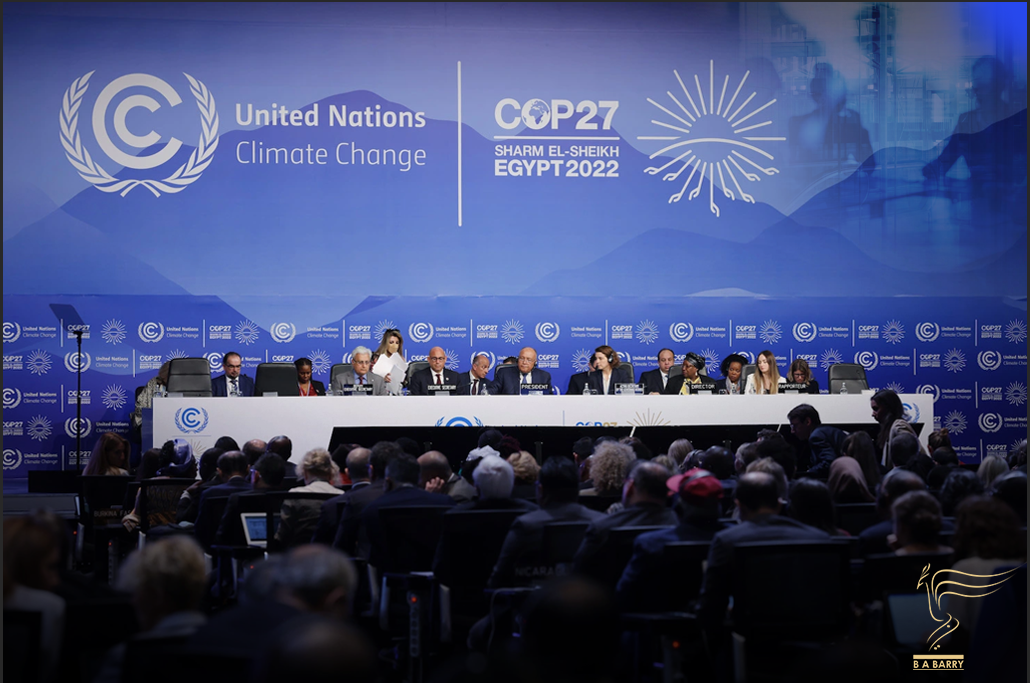- Tokyo : 11:12 |
- Singapore : 10:12 |
- Dubai : 06:12 |
- London : 02:12 |
- New York : 21:12 |
- Sydney : 13:12

COP27 summit held in Sharm el-Sheikh, Egypt is a continued legacy of conferences with the prime agenda of achieving goals towards the Paris Agreement, where joint efforts and plans are discussed to address changing climate by collaboration between civil societies, businesses, and governments.
Key outcomes of COP27 related to businesses
This year’s COP had many trajectories pointing in different directions to reach a common goal of climate change. Some of them are about using sustainable energy sources in all sorts of businesses, reducing the use of non-renewable energy resources, and also monitoring and mitigating greenhouse gasses emissions to the minimum. These outcomes were categorized under the initiatives like Net Zero Emissions and Clean Energy Investment.
Pros of COP27 decisions on businesses
1. Climate change control may prevent businesses from destruction
With changing climatic conditions, frequent occurrences of natural disasters like floods, heat waves, droughts, earthquakes, and many more are increasing. Whenever such a destructive phenomenon occurs, it wipes off many economies and businesses. However, if the initiatives taken by cop27 are implemented, control over climate change can be executed, which would eventually prevent many businesses and industries.
2. Switching to Clean Energy Sources is profitable in the long run
If industries & businesses switch to clean energy sources for their production, packaging, and other activities, as per the cop27. Then, initially, it might be an expensive deal but eventually would be profitable in the long run.
You might be thinking, how? Well, clean energy sources would mostly be sustainable sources, which will come without the cost of buying it again & again, the only cost would be a nominal amount of maintenance.
Next, the money invested in technology to reduce emissions will go directly into your profits. Moreover, in the future years, we will be devoid of the remaining resources, then only those with such approaches will be able to survive in the market.
3. Technology to reduce emissions can improve businesses' image
You might have heard that those who touch the emotional side of people, win. The same goes with this one, as cop27 brought decisions on reducing & bringing net zero emissions. Businesses and industries are responsible for a huge percentage of total emissions & global temperature rise, which has disturbed economies, health conditions, and lives of many people all over the world. Those businesses that can meet the requirement of reducing carbon & greenhouse gas emissions, will get the goodwill of people. Additionally, if you get goodwill, your business is bound to bloom. So, it is a win-win, if looked at, in the right way.
Cons of COP27 decisions on businesses
1. Small businesses might die while coping with COP27 requirements
Switching to sustainable clean energy sources is beneficial to the environment and mitigating climate change doesn’t deny the fact that it is expensive. Regulations like such, when imposed on smaller industries, won’t be able to handle it. Fund insufficiency with requirements for climate change makes it difficult for them to incorporate such changes, and if they do, the business might suffer. Moreover, such issues will also affect employment in those areas and other industries.
2. Hike in prices for services & goods
Even if some industries follow the rules & others don’t, still there will be circumstances. The bigger industries might incorporate sustainable & clean energy sources but will cover their costs by increasing the prices of other goods and services. Every industry & company is mostly dependent on some other for raw materials, and things like that. Eventually, a chaotic & disturbed economy would be seen at the forefront.
3. Emission control systems will be an expensive deal
These requirements will affect utility and energy companies that operate power plants and refineries. As installing and upgrading emission control systems comes with a lot of costs, fulfilling the regulations on heat-trapping gasses can affect many interconnected things, which go surpassed without looking into details.
Conclusion:
Being a financial advisor I think, to keep up with the environment and the businesses together, without incurring losses, the best strategy would be to make small bearable upgrades in terms of clean energy sources & technologies to reduce emissions. Things like that, cannot be implemented overnight, pragmatic solutions & strategies must be considered. Moreover, very small businesses & industries that can’t even bear the cost of slow environment-friendly changes, can be supported by the government & bigger businesses. Collaboration is the key to change.